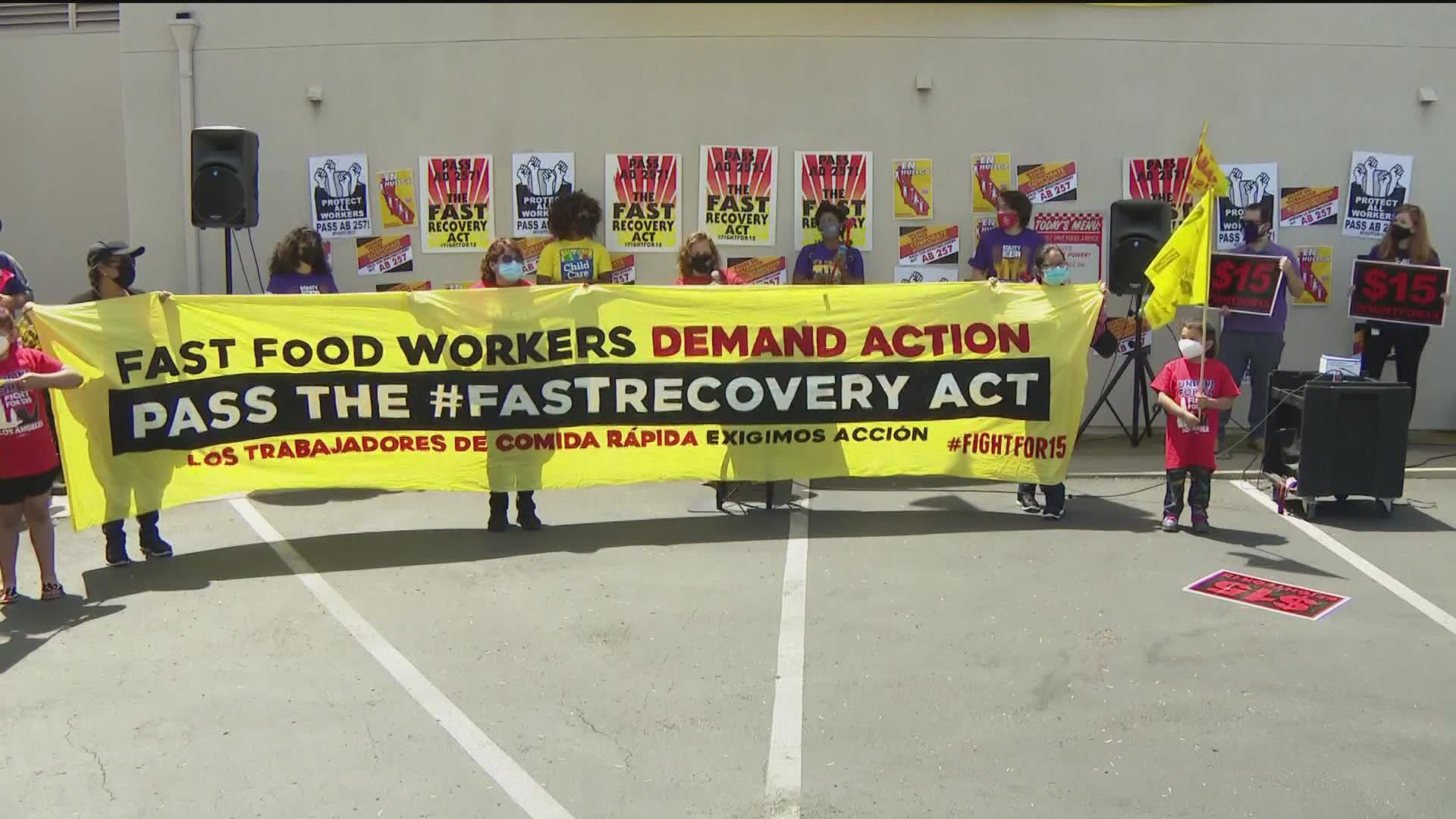SAN DIEGO — A new state law giving fast food workers more power to fight for better wages and working conditions is now facing an intense legal challenge.
AB 257 paved the way for a special council to set minimum standards for wages, hours and working conditions.
However, opponents are now pushing for a statewide referendum, meaning that voters would have the final say on the fate of this law.
AB 257, which could raise the minimum hourly wage for fast food workers in California to $22 an hour, was set to go into effect on January 1.
That could be put on hold though - at least temporarily -- if this referendum is allowed to move forward.
Just two days after Governor Gavin Newsom signed AB 257 into law, providing fast food workers with more protections, its future is now unclear.
"We are going to press forward to make this law come into reality," said SEIU International President Mary Kay Henry.
However, a coalition of fast-food restaurant owners is pressing forward with a referendum request to try to block this law from going into effect, meaning that California voters could make the ultimate decision.
Opponents of AB 257 argue that this will unfairly target small business owners who are franchise holders, raising their costs, which would then be passed on to customers in the form of price hikes, adding in a statement the following:
"It is only right for California's voters to have a voice before harboring the burden of a bill that has widely been heralded as a massive step in the wrong direction."
Supporters of AB 257 are blasting the move to block this law, the first of its kind in the United States, which would give fast food workers more of a voice in advocating for better wages and work conditions.
"This isn't about small businesses," said fast food worker, Angelica Hernandez, speaking through a translator. "This is about the richest companies in America using their pocketbooks to subvert democracy."
"The opposition is saying that they are more than willing to spend money on advertising companies," said Maurice Mitchell, national director of the Working Families Party. "And other union-busting entities rather than share their profits with the very workers who make them profitable."
This is a battle that could play out for years to come.
Once the referendum request is accepted by the state Attorney General's office, most likely by September 16, the coalition behind the referendum could begin gathering signatures.
They would need roughly 623,000 valid voters signatures signatures in order to qualify for the November 2024 ballot.
Their opponents say that they are ready.
"We are not counting on it qualifying," Henry said, "but we are also prepared for a fight."
Backers of this referendum would have until April 1 to submit the required number of signatures to the Secretary of State's office.
WATCH RELATED: New lawsuit could threaten fate of a massive redevelopment of the city's Sports Arena site (September 2022)

